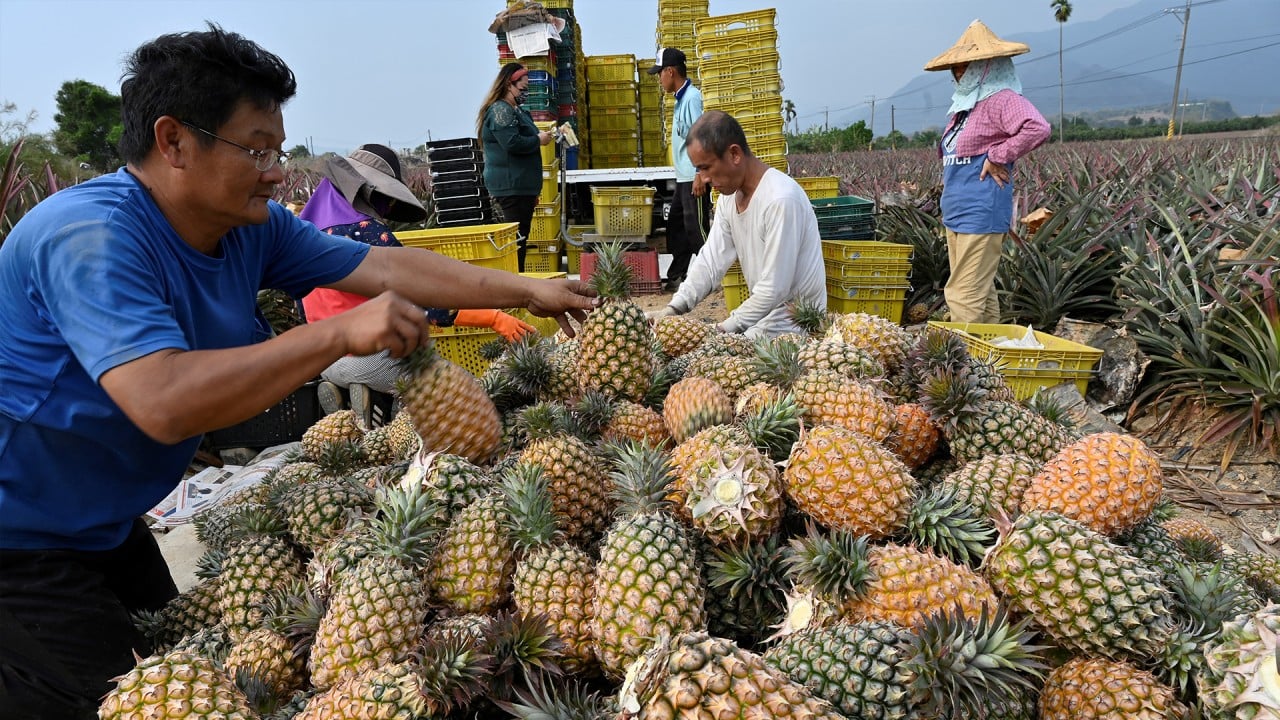Mainland China, Taiwan farming cooperation could be fruitful – despite recent sour grapes
“There is potential space for the integrated development of agriculture on both sides of the Taiwan Strait, and we must deeply understand challenges … make up for shortcomings, and improve the quality of agricultural work with Taiwan,” the ministry said after its meeting in Xiamen, a city just opposite the strait.
Taiwanese tea merchants understand mainland China’s market size and its vast range of varietals due to geographic scope, said Yu, whose association has about 100 members. Taiwan can offer mainland growers help with tea production and the packing of leaves since that technology has “peaked” on the island, he said.
Taipei hits out at ‘one-sided’ act as mainland China bans Taiwanese mangoes
Companies in the trade already meet and talk in mainland China regularly, he said, including at annual conferences in Fujian province.
The mainland ministry further recommended the “creation of policies to provide more convenience for Taiwanese farmers and businessmen” in land use, financing and market development.
On the technology front, Taipei-based Ubiquity Sprouting Corporation has developed methods to grow organic mung beans, peanut sprouts and vegetables indoors while saving water.
When we eat, we’re not focused on politics
To date, farmers in Henan province have bought enough of his systems to farm up to 450 hectares of beans, and farmers in Shandong province have signed a purchase deal, company founder Lai Horng-ji said.
“The population is large and the market is large, while costs are low,” Lai said. “In Taiwan, we have just 23 million people. It’s not much of a market.”
Another potential area of cooperation would be in stopping illegal food additives, Lai said, though admitted it would be “pretty hard to break through on this issue”. He did add there could still be room for agreement, as “people in the mainland are afraid of these ‘blackheart foods’, and in Taiwan we’re afraid, too.
“When we eat, we’re not focused on politics.”
However, periodic bans on agricultural shipments to the mainland have reduced trust, some in the industry said.
Mainland customs officials effectively stalled other seafood imports in 2021 by changing regulations covering the business registrations of Taiwanese exporters, the 200-member Taiwan Frozen Seafood Industries Association said.
The share of Taiwan’s agricultural exports to the mainland fell to 12.9 per cent in 2022, according to domestic media reports citing the island’s Ministry of Agriculture – a significant drop from earlier years.
Beijing views self-ruled Taiwan as a breakaway territory that must be reunited, by force if necessary, and most countries do not recognise the island as an independent state. Relations have soured over the past eight years, a trend that analysts say explains the deterioration in trade.
“Presently, Taiwan’s seafood merchants are limited by not smoothly getting registrations as offshore enterprises,” the frozen seafood trade group said. “As for the mainland hoping to strengthen cooperation with enterprises in Taiwan agriculture, we’re afraid a substantive effect will be hard.”
Taiwan’s Tsai Ing-wen faces referendum over lifting ban on US ractopamine pork
Taiwan’s agricultural ministry did not answer a request for comment.
Mainland Chinese officials could view aiding Taiwan’s agricultural sector as a way to win favour in the fertile south of the island, said Chen Yi-fan, assistant professor of diplomacy and international relations at Tamkang University in Taiwan.
“Farmers desperately need a market to expand their sales,” he said. At present, the field makes up just 1.8 per cent of Taiwan’s gross domestic product.
